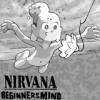The title of the work, and those of its movements, were a late addition to the project. They were first described by Messiaen in a diary entry in early 1948. He derived the title from two Sanskrit words, turanga and lîla, which roughly translate into English as "love song and hymn of joy, time, movement, rhythm, life, and death", and described the joy of Turangalîla as "superhuman, overflowing, dazzling and abandoned".
Messiaen revised the work in 1990.
Instrumentation
The piece is scored for:
Solo piano and ondes Martenot;
Woodwind: piccolo, 2 flutes, 2 oboes, cor anglais, 2 clarinets, bass clarinet, 3 bassoons;
Brass: 4 horns, 3 ♥♥♥♥♥ets, 1 ♥♥♥♥♥et in D, cornet, 3 trombones, 1 tuba;
At least 8 and up to 11 percussionists, playing: vibraphone, keyed or mallet glockenspiels, triangle, temple blocks and wood block, cymbals (crash and three types of suspended), tam tam, tambourine, maracas, snare drum, Provençal tabor, bass drum, and tubular bells;
celesta, and strings (32 violins, 14 violas, 12 cellos and 10 double basses)







 Reply With Quote
Reply With Quote



Bookmarks